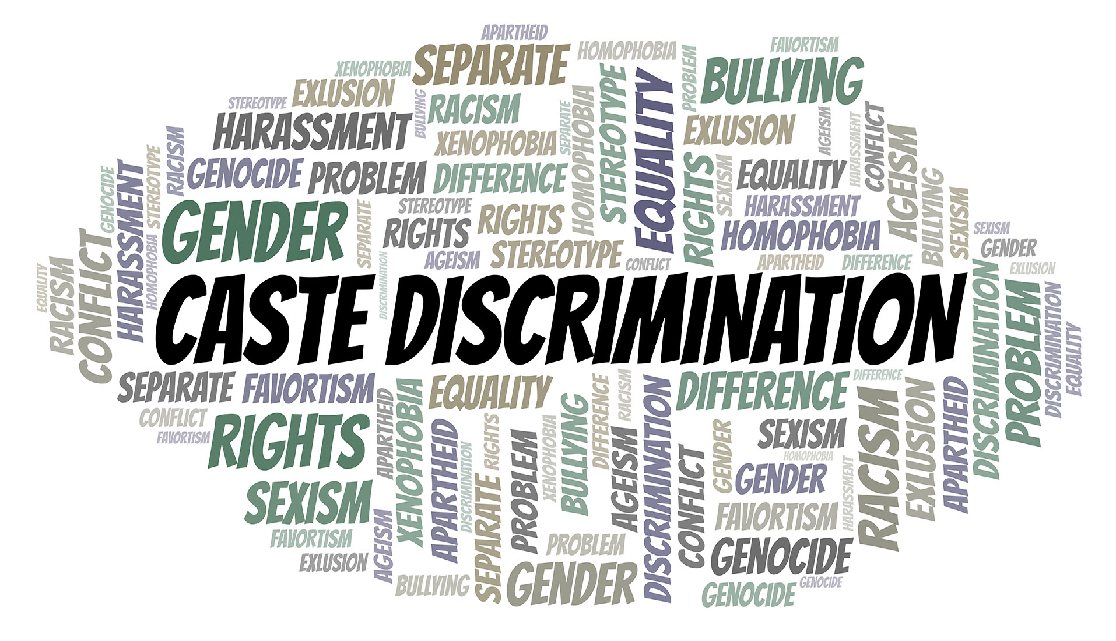
CASTE BIAS IN MODERN INDIA? UNFORGIVABLE!
There is nothing as bizarre as caste discrimination; and India maybe has the unique distinction of being the only country to have such a ‘varna system,’ which segregates people according to their occupation and has been continuing for ages despite all the mind-boggling advances we have made. We keep on getting rattled by reports of Dalits being severely punished; only because they dared to transgress on an upper caste’s territory or because someone committed the unforgivable sin of drawing water from a well meant for the ‘higher-ups’ in society.
Sometimes, nauseating stories emerge of kids being ill-treated for no fault of theirs at school just because they are not from the higher strata of society. Or of people not being allowed into temples, considered the fiefdom of some castes. And if such entries happen, there are priests who take pains to cleanse the precincts off the ‘shudra’s touch’ raising questions on whether anything has really changed in our social mores since Independence from the colonial yoke.
But what if this happens even in higher institutes of learning where the democratic and secular spirit should be in full flow? Do our budding scholars judge those sitting next to them in the vast halls of varsities where wisdom is imparted impartially, by the colour of their skin or their second name? The great poet Rabindranath Tagore expressed his aspirations for an emerging India with his immortal verses in ‘Gitanjali,’ which read like this: “Where the mind is without fear and the head is held high; Where knowledge is free; Where the world has not been broken up into fragments by narrow domestic walls… Into that heaven of freedom, my Father, let my country awake.” Have those who tend to discriminate and harbour narrow and chauvinistic instincts in such sacred and revered institutions of higher learning, ever cared to imbibe the true meaning of Tagore’s eternal lines?In Namma Bengaluru itself, the IIM-B, the pride of every Bengalurean, has also been hit by controversy from time to time.
A few weeks ago, the Karnataka Social Welfare Department had directed Bengaluru Police Commissioner B. Dayananda to take action against IIM-B officials over caste-based discrimination allegations. The inquiry followed a complaint from Dr Gopal Das, an associate professor from the Scheduled Caste (SC) community, who accused senior IIM-B officials of workplace discrimination, leading to a controversy. And more recently, an IIM-B student committed suicide according to the preliminary probe conducted by the police but the incident did not fail to trigger several posts on social media demanding clarity on the issue. A student body went to the extent of claiming that ‘the institution lacks adequate mechanisms to address the concerns of marginalised communities’.
The sad fact is that we are still debating caste-based bias in a supposedly modern society where justice, fairness, freedom and equality are meant to be ingrained in every aspect of life. Are we cursed to ever remain prisoners of a system born ages ago which has faced fierce opposition from every social reformer? How many more Rohit Vemulas and Payal Tadvis will it take before we become a sane and secular society where the human spirit prevails over every form of discrimination – based on caste, religion or region? India needs a social reawakening like never before and rules which ensure that discriminative practices are abhorred and even penalised so that no one dares to think that he can get away with a casteist slur which creates a deep scar on the victim it is hurled at.
Freed of such mental blocks which inhibit free expression and the unhindered flow of creative thoughts, our emerging generations are sure to contribute a lot more and in a much more meaningful manner to the treasure trove of knowledge which goes into the making of a better nation.
 English daily published in Bengaluru & Doha
English daily published in Bengaluru & Doha






